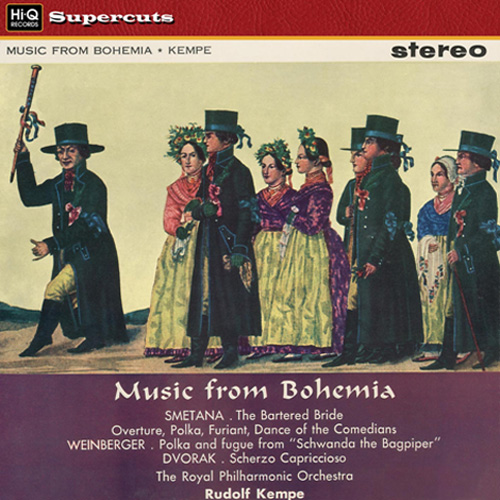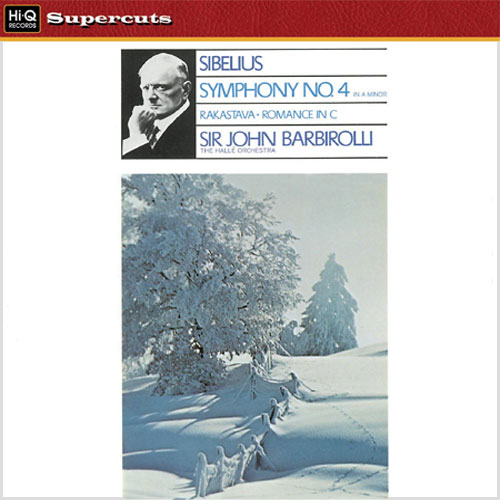Logowanie
Dziś nikt już tak genialnie nie jazzuje!
Bobby Hutcherson, Joe Sample
San Francisco
SHM-CD/SACD - NOWY FORMAT - DŻWIĘK TAK CZYSTY, JAK Z CZASU WIELKIEGO WYBUCHU!
Wayne Shorter, Freddie Hubbard, Herbie Hancock, Ron Carter, Elvin Jones
Speak no evil
UHQCD - dotknij Oryginału - MQA (Master Quality Authenticated)
Chesky! Niezmiennie perfekcyjny
Winylowy niezbędnik
ClearAudio
Double Matrix Professional - Sonic
najbardziej inteligentna i skuteczna pralka do płyt winylowych wszelkiego typu - całkowicie automatyczna
SMETANA, WEINBERGER, DVORAK, Rudolf Kempe, Royal Philharmonic Orchestra
The Bartered Bride / Scherzo Capriccioso, Op. 66 / Schwanda the Bagpiper
- Rudolf Kempe - conductor
- Royal Philharmonic Orchestra - orchestra
- SMETANA
- WEINBERGER
- DVORAK
The Royal Philharmonic Orchestra performs Smetana, Weinberger, and Dvorak conducted by Rudolf Kempe. Rudolf Kempe was associated with the Royal Philharmonic (RPO) from 1955. In 1960, he became its Associate Conductor, chosen by the orchestra's founder, Sir Thomas Beecham. From 1961 to 1962 he was Principal Conductor of the RPO, and from 1963 to 1975 its Artistic Director. A member of the RPO later said of Kempe, "He was a wonderful controller of the orchestra, and a very great accompanist ... Kempe was like someone driving a racing-car, following the piano round the bends." Kempe abolished Beecham's male-only rule, introducing women into the RPO: an orchestra without them, he said, "always reminds me of the army". In 1970, the RPO named him Conductor for Life, but in 1975, he resigned his post with the orchestra and died the following year, aged 65. His distinguished career in both the opera house and concert hall led to the first quadraphonic Beethoven cycle with the Munich Philharmonic for EMI in the mid '70s. "The Royal Philharmonic Orchestra plays very finely for its new conductor-in-chief and Kempe seems to me to blend rollicking high spirits with lush sentiment in a superlative degree... From the opening bars [Dvorak], happily thrown off by the horns to the brilliant and exciting coda, everything seems to go right and the tricky linking and transition passages fit into the pattern more easily and naturally than is often the case. The brilliant Polka and uproarious Fugue from Schwanda made me laugh out loud with delight. This gains enormously from the very wide range of dynamics on this disc for there is real body in the tone of even the softest passages. This body in the softer passages also enhances the beauty of the swirling strings in the Overture to The Bartered Bride and as the three dances are played with fine élan and subtly controlled rhythms, this is a highly desirable disc on all counts..." - from the original March 1962 review by W.A. Chislett of the GRAMOPHONE Recorded on 28 & 31 January and 26 April 1961 at No.1 Studio, Abbey Road, London. Produced by Ronald Kinloch Anderson, Engineered by Robert Gooch. Cut at Abbey Road Studios from the original stereo analogue master tapes with the Neumann VMS82 lathe fed an analogue pre-cut signal from a specially adapted Studer A80 tape deck with additional ?advance? playback head, making the cut a totally analogue process.



































